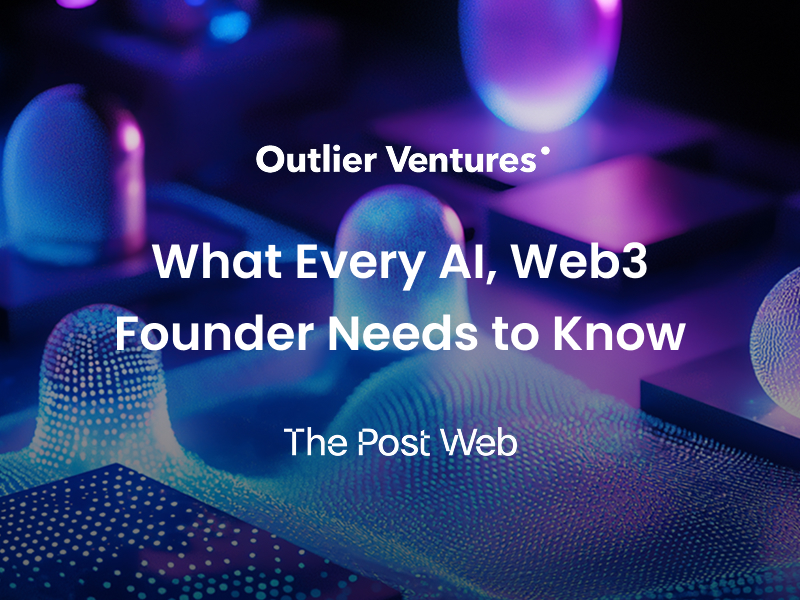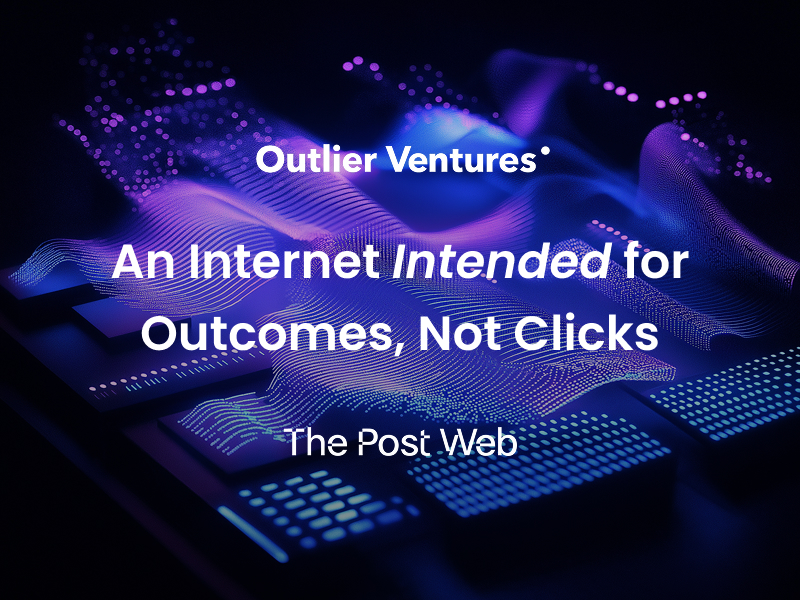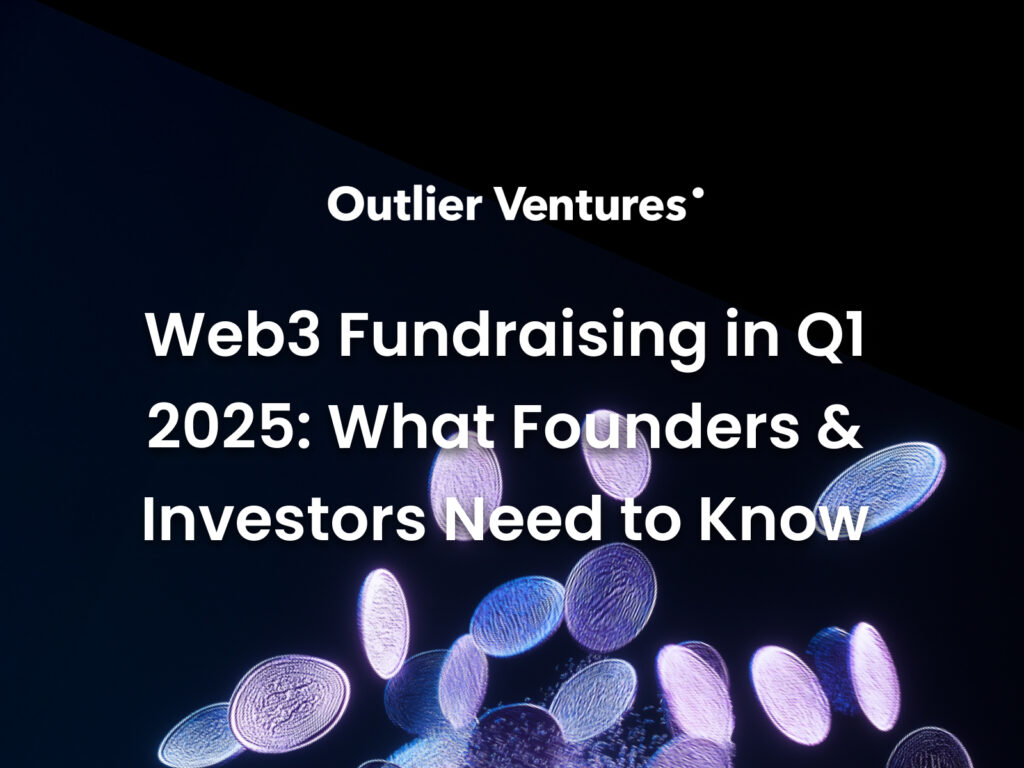INTRODUCTION
Firstly it’s a great pleasure to finally be able to talk about this project. At Outlier Ventures we have been working intensively with the team (in stealth) for over 14 months, the longest of any of our advisory projects to date. Because it’s been ‘dark’ during that time, except for a few select enterprise partners, it has created a lot of mystique and curiosity. We can’t wait to begin to open up the process to the wider world and shed light on one of the most eagerly anticipated projects of 2018.
But let’s start with making a big statement which I fully appreciate is an often overused and generally abused marketing term: but this is genuinely next generation distributed ledger tech.
For the first time we can genuinely say we have not smart contracts but instead a smart ledger.
To date intelligence, even rudimentary and deterministic yes / no, is a largely unaffordable and unscalable promise left to others to realise on top of deliberately dumb ledgers, through ‘smart’ contracts and oracles.
Anyone looking to use the current iterations of dumb ledgers for anything complex, dynamic or predictive (let alone for fully autonomous systems) will be left wanting. Burdensome, expensive, limited in throughput and worse littered with redundancy today it simply doesn’t meet many organisations’ ambitions.
The fact you must carry out the same expensive and inefficient computations every time you want to make a decision, and subsequent action, even if a similar process has been carried out before on the network (to anyone with a machine learning background) this seems wholly illogical.
This was in fact the starting point for the Fetch.ai team. Made up of over 20 machine learning experts, including early investors and developers from Deepmind (the AI company acquired by Google), who at the beginning of 2017 looked to blockchain technologies to support autonomous systems of drones.
WHAT DO AUTONOMOUS SYSTEMS NEED?
Firstly, multi-stakeholder autonomous systems, as envisaged for say transportation, simply must to be decentralized.
Both because of the safety & security vulnerabilities of a central point of failure and attack. But also because reliance on any one central 3rd party means conceding to an unpalatable platform monopoly.
That aside, this decentralised web architecture must support; data discovery, dynamic virtual proximity of data & objects, as well as predictive functionality. It needs to allow emergent intelligence (rather than top down) as well organic market making: where autonomous agents work on behalf of individuals, collectives, devices and / or organisation sometimes simultaneously.
These agents must be imbued with the ability to transact, pay tax, be insured and enter into legal agreements. They must become fully able economic digital citizens, otherwise known as Autonomous Economic Agents (AEA).
THE FETCH APPROACH
Fetch refers to itself as a ‘decentralised digital world’. One where autonomous software agents perform useful economic work.
These AEAs exchange value and perform specialised tasks for their owners and each other within a shared Open Economic Framework (OEF), developed with academics from Cambridge & Sheffield Universities, England.
This includes services such as: the provisioning of data for decisioning, the trading of excess capacity, energy, computation, or the storage, transfer and transportation of digital or physical assets. And that’s just the start.
Importantly both the AEAs, and the ledger they carry out their business on, learn everytime they do so whilst building up levels of reputation and trust. This allows the system in aggregate to get better and more efficient at each job for the benefit of the market as a whole. In fact, because the ledger becomes a market of markets (all evolved bottom up) it allows for new correlations to be discovered by the AEAs themselves, expanding economic activity potentially leading to new levels of growth.
This happens because of a unique blend of ledger technology that borrows from blockchains and innovations in directed acyclic graphs (DAGs) to deliver both high performance, at near zero cost transactions but with a consensus mechanism called Useful Proof-of-Work.
It has been designed day one to be easily interfaced with existing systems, devices and databases (as they are today) through standard APIs allowing nodes to simply plug into the Fetch Network and markets to self-form from the bottom up.
The Fetch technology is governed by a non-profit (Singaporean) FETCH.AI Foundation, and is underpinned by a series of patents, for example in Smart Ledgers, AEAs and High Velocity Token technology but that is made available under an open software license. Importantly, this allows anyone, anywhere to join this new and inclusive digital economy.
Whilst the system inherently encourages the opening of data silos, it also allows for proprietary intelligence to be developed and sold through AEA marketplaces either by people or other AEAs on their behalf. Whereby AEAs, rather than data alone, become business models in their own right.
Furthermore this is not theoretical: the technology is up and running today (albeit in early form) with a number of active AEAs busily navigating this new digital world with the code released on github over the coming months.
TEAM
Well as you can imagine, this is an incredibly ambitious task which everyone should rightfully be sceptical of until proven otherwise. And had we not spent the last 14 months working closely with them team and seen the tech working with our own every eyes, we likely wouldn’t have believed it. However the more you learn about the team and their background the more confident you become in the project. The heroes of this have largely been hidden away from maelstrom that is crypto, until now.
Below is a teaser of some of their backgrounds but they will increasingly be profiled online and at events over the coming months in the build up to their anticipated token sale later this year.
- Humayun Sheikh, Co-founder & CEO Innovation entrepreneur founding investor in DeepMind
- Toby Simpson, Co-founder & CTO Artificial life, AI and distributed agent-based virtual world pioneer
- Thomas Hain, Chief Scientific Officer Professor at Sheffield University, established scientist in advanced machine learning and AI
- Jonathan Ward, Senior ML scientist Highly cited researcher in AI with PHD from UCL
- Troels Rønnow, Senior Software Engineer Scientist and innovator, co-authored 35 patent applications
- Arthur Meadows, Head of Operations International experience in software startups, MBA from Judge, Cambridge
- Melvyn Weeks, Economic Advisor Assistant Professor in Economics at University of Cambridge
PLACE IN CONVERGENCE ECOSYSTEM STACK
Fetch is a fundamental component in The Convergence Ecosystem TM at the ‘Process, Analyse & Automate Layer’: decentralized machine learning.
We believe Fetch is building a critical piece of automation technology for the new era of decentralized infrastructure. In order to execute on this vision and the performance requirements, Fetch has needed to move down the stack into the Authenticate, Validate and Secure Layer to build a new ledger and a consensus mechanism.
We believe there will be numerous ledgers, consensus mechanisms and other decentralised protocols co-existing to serve different use cases and customers. We expect Fetch to partner and work with other decentralised infrastructure providers offering complementary technologies and protocols to fulfil the vision of a decentralized future.

WHAT NEXT
The project is currently being opened up to a select group of industry partners however intends to officially launch at a key crypto event here in Europe (in March)…
You can find their website at Fetch.ai (which will increasingly add more content inc. whitepaper) and engage with the team in Telegram
Oh yeah, get excited. Very excited.




